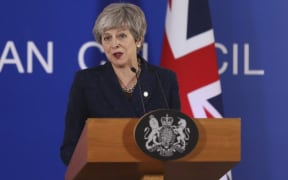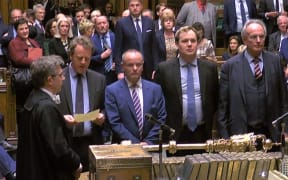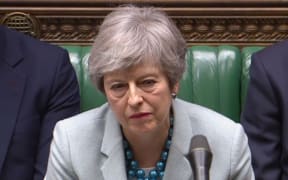MPs are debating eight proposals on the future of Brexit ahead of votes later on a way forward.
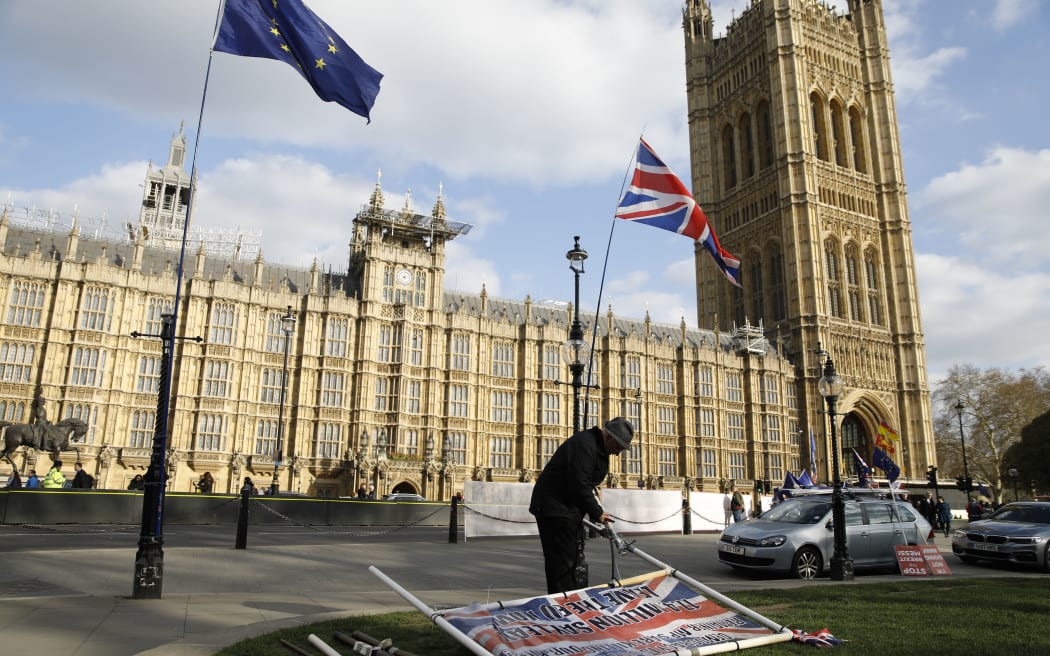
An EU and a Union flag flutter near the Houses of Parliament in central London on March 27, 2019. Photo: AFP
It comes after MPs took control of the House from the government as they attempt to find a majority for the next steps in the Brexit process.
Measures being debated include leaving without a deal, forming a customs union and a confirmatory referendum.
UK Prime Minister Theresa May is still trying to drum up support for her deal, despite it being voted down by a large margin twice.
She has told Conservative MPs she will resign once Brexit is delivered in a last-ditch effort to get her deal through.
Speaker of the House John Bercow has announced which eight proposals he had chosen for votes, he reiterated his earlier warnings that the PM's deal could not come back for a vote if it had not significantly changed.
Groups have been putting forward different options for the UK's future relationship with the EU, with several based on the assumption Mrs May's withdrawal agreement with the EU will be approved - albeit with changes to the controversial Northern Ireland backstop.
The options are:
- No-deal Brexit - Leave the EU on 12 April without a deal - Tory MP John Baron
- Common Market 2.0 - The UK joins the European Economic Area and negotiates a temporary customs union until alternative arrangements can be found - Tory MP Nick Boles
- EFTA/EEA - Similar to Common Market 2.0 but rejects any kind of customs union with the EU and says the Irish backstop must be replaced with alternative arrangements - Tory MP George Eustice
- Customs union - Calls for the UK to negotiate a permanent customs union with the EU after Brexit - Tory MP Ken Clarke
- Labour's alternative plan - A customs union with the EU and "close alignment" with the single market - Labour leader Jeremy Corbyn
- Revoke Article 50 - Cancel Brexit if the UK gets within days of leaving without a deal. MPs would be asked to vote on a no-deal exit and if they rejected that, Article 50 would be revoked - SNP MP Joanna Cherry
- Confirmatory public vote - Parliament cannot ratify or implement any agreement on the UK's withdrawal and future relationship "unless and until they have been approved by the people of the UK in a confirmatory public ballot" - Labour MP Margaret Beckett
- Malthouse Plan B - The UK makes its budgetary contributions to the EU to the end of 2020 and agrees with the EU a period of two years in which UK goods have full access to the EU - Tory MP Marcus Fysh
Friday is the day written into law for the UK to leave the EU, but later MPs will vote on a statutory instrument to confirm a delay - with the earliest Brexit is likely to happen now being 12 April.
Earlier, the government ordered their MPs to vote against a business motion securing the indicative votes for Tuesday evening local time, but lost by 331 to 287.
Conservative backbencher Sir Oliver Letwin, whose cross-party proposal ushered in today's debate, said the only way leaving the EU with no-deal can be prevented is by crystallising an alternative majority and trying to carry it forward.
He said that if MPs supported the prime minister's deal in another meaningful vote this would be "the easy route".
But he said that he "profoundly hopes" that if on Monday there was a majority view in favour of a particular position, that the government would say that it will carry that forward.
How will the process work?
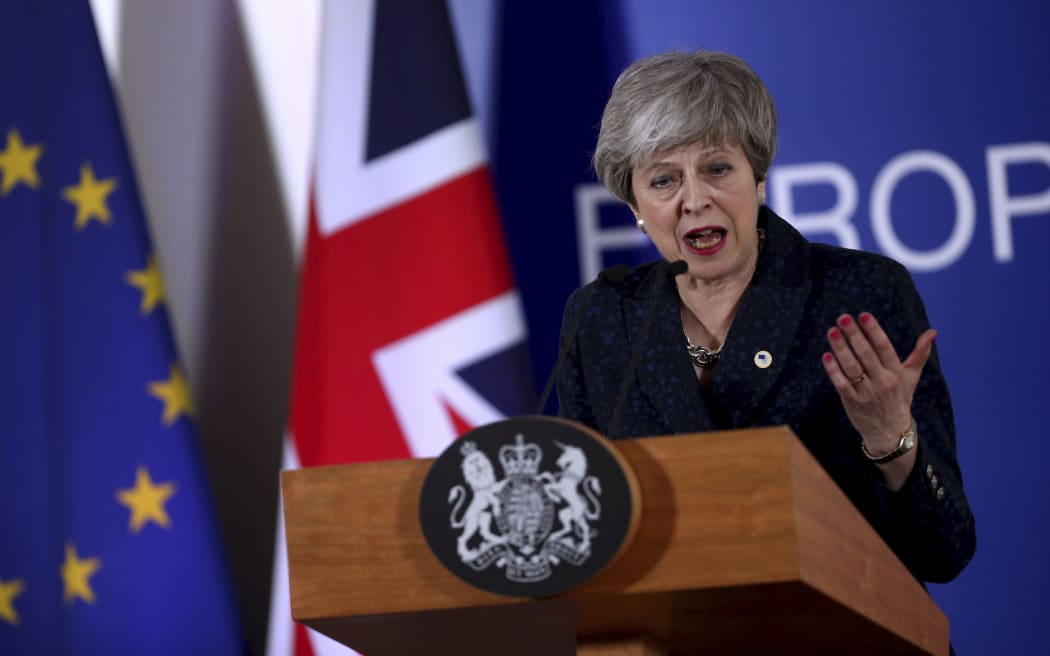
British Prime Minister Theresa May Photo: AP
There will be just under four hours of debate on the different options.
After that, MPs will be given a piece of paper listing the options, and will have to mark each one with a "yes" or "no".
MPs will use both lobbies for completing the indicative vote ballots.
Voting by paper ballot will take place at about 8am (New Zealand Time), with the results announced by Mr Bercow later that evening.
But the process is likely to continue on Monday as MPs seek to whittle down options which could command majority support in Parliament.
The government has until 12 April to propose a different way forward to the EU if it cannot get the current agreement through Parliament.
Timetable for today in Parliament (NZT, All times approximated)
- Before 8am (NZT): MPs debate the proposals before indicative votes later.
- 8am: MPs vote with paper and pen for their preferences.
- 8.30am: Debate on statutory instrument (SI) bringing Brexit delay into law.
- 10am: Vote on SI.
- 10.30am: The Speaker announces the results of the indicative votes - though he could announce them earlier during SI debate.
How are MPs likely to vote?
Conservative MPs will be given a free vote, meaning they will be able to support or reject any proposal without pressure from party whips. Cabinet ministers will be abstaining.
The decision followed warnings that more than a dozen ministers might quit if they were told they had to follow party orders.
Labour MPs are being whipped to support the party's own proposal as well as a number of others, including one for a referendum to endorse any deal.
There was some confusion over the confirmatory public vote option. Labour MP Peter Kyle helped draw up the motion and told Today that he expected his leader Jeremy Corbyn to order his MPs to back it.
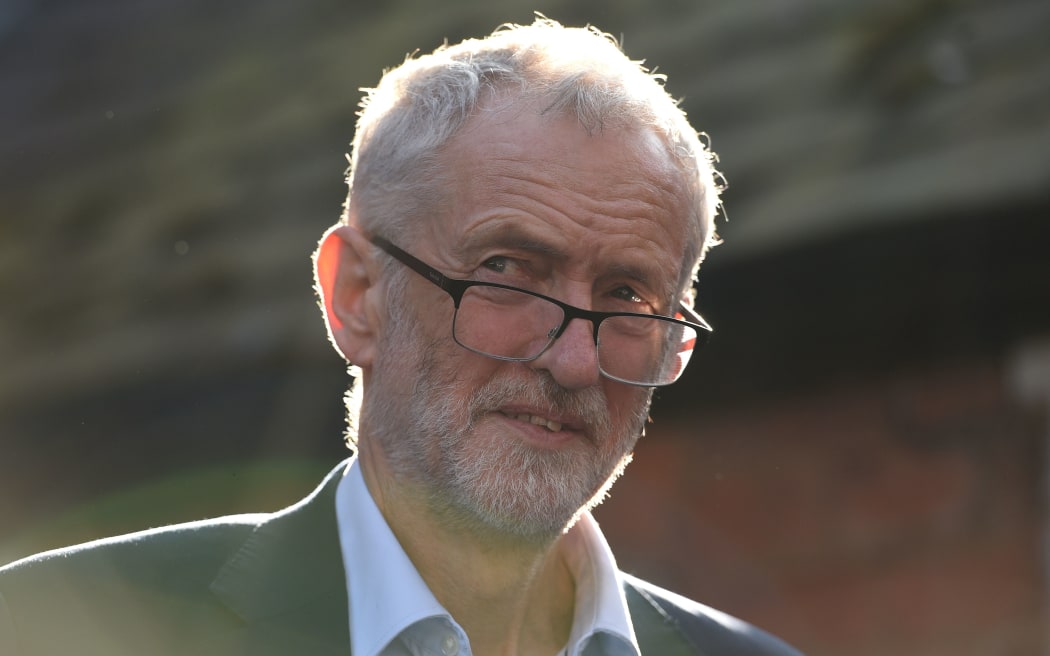
Labour party leader Jeremy Corbyn Photo: AFP
But his colleague Barry Gardiner cast doubt on the support from Labour's frontbench, telling the programme the amendment makes it "look like a public vote is an attempt to Remain", adding: "It is not where our policy has been."
MPs later confirmed they had been ordered to support the proposal.
The DUP's leader in Westminster, Nigel Dodds, co-signed two proposals - one asking for the result of the EU referendum in 2016 to be respected and another backing the Malthouse Compromise.
The BBC's political editor Laura Kuenssberg said some leading Brexiteers were "tiptoeing their way" towards supporting Mrs May's plan.
But many want to confirm the support of the Democratic Unionist Party - the 10 Northern Irish MPs that give Mrs May a majority in the Commons - before they agree.
The party has urged Tory MPs to "stand firm" in their opposition unless there were "significant changes" - namely to the insurance policy to prevent a hard border returning to the island of Ireland, known as the backstop.
Conservative MP Jacob Rees-Mogg has said of the PM's deal: "Half a loaf is better than no bread."
He told Today programme he did not "begin to pretend this is a good deal or a good choice", but he would support the Prime Minister's plan if it had the backing of the DUP.
Fellow ERG member, Tory MP Daniel Kawczynski, tweeted that he had appealed to members of the DUP to abstain from voting on Mrs May's deal if they cannot back it, saying it could be enough to get the plan "across the finishing line".
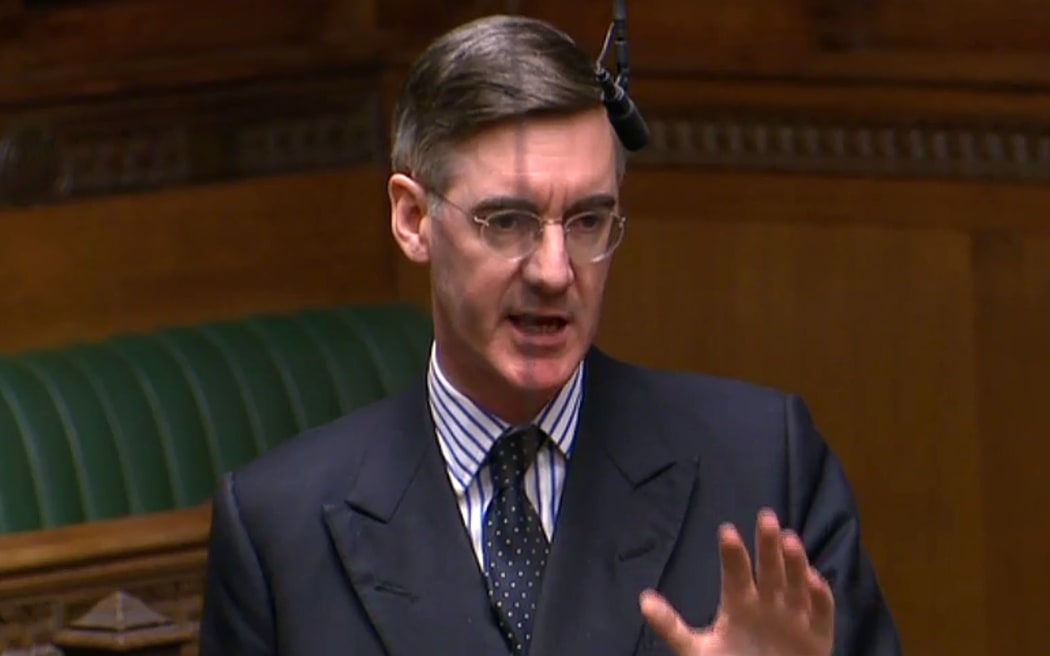
Conservative MP Jacob Rees-Mogg. Photo: AFP / PRU
Mrs Leadsom said the government was still in talks to persuade the DUP to back it, along with other MPs on their own benches.
But ex-Foreign Secretary Boris Johnson said there was "no point" supporting Mrs May's deal "without any sign the UK is going to change its approach in phase two" of the negotiations. Otherwise he said he feared the country would be indefinitely tied to the EU's rules.
Laura Kuenssberg said the not-so-subtle subtext of Mr Johnson's remarks was "if the PM promises to go soon, then she might get my vote".
Meanwhile, European Council president of the Donald Tusk told MEPs they "cannot betray the six million people who signed the petition to revoke Article 50, the one million people who marched for a people's vote, or the increasing majority of people who want to remain in the EU".
He said the people "may feel that they are not sufficiently represented by the UK Parliament, but they must feel that they are represented by you ... because they are Europeans".
- BBC
